Week in Review, January 14
Jan 14
- Examine the recent increase in Freedom of Information Act cases filed. (The FOIA Project, January 6, 2016)
- Consider electronic cigarette advertising that reaches middle and high school students. (Centers for Disease Control and Prevention, January 8, 2016)
- Review issues related to the death penalty in Texas in the past year. (Texas Coalition to Abolish the Death Penalty, December 16, 2015)
- Explore causes of death and which segments of the population are affected by specific causes. (FlowingData, accessed January 13, 2016)
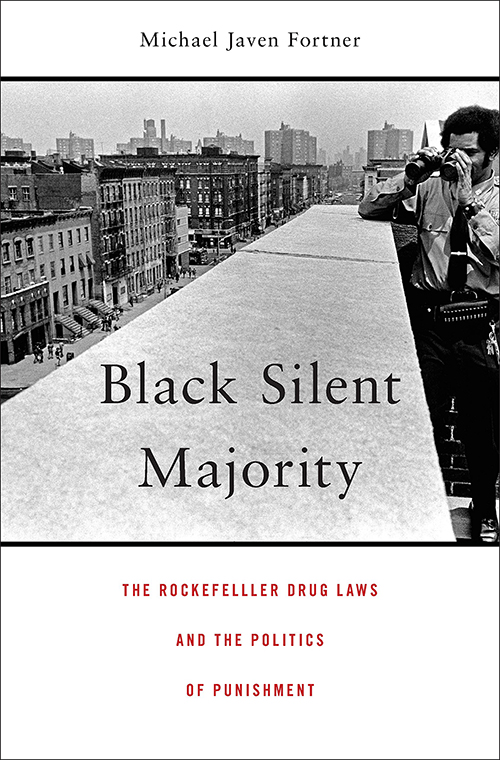
1. Black Silent Majority: The Rockefeller Drug Laws and the Politics of Punishment By Michael Javen Fortner
Examines the social and political support provided by the African-American "silent majority" of New York City during the buildup to the Rockefeller Drug laws of 1973, which were among the first to establish lengthy mandatory minimum sentencing for narcotics offenses. Details the motivations of the working and middle class residents, activists, and civic leaders who helped to push "tough on crime" policies following the perceived failure of treatment-based anti-narcotics strategy of the 1960's. Concludes by considering the effects of the 1970's drug laws, and in particular how they impacted the African-American community through high incarceration rates and associated societal impacts
Harvard University Press, 2015. 350 pages.
364.1 F778B 2015
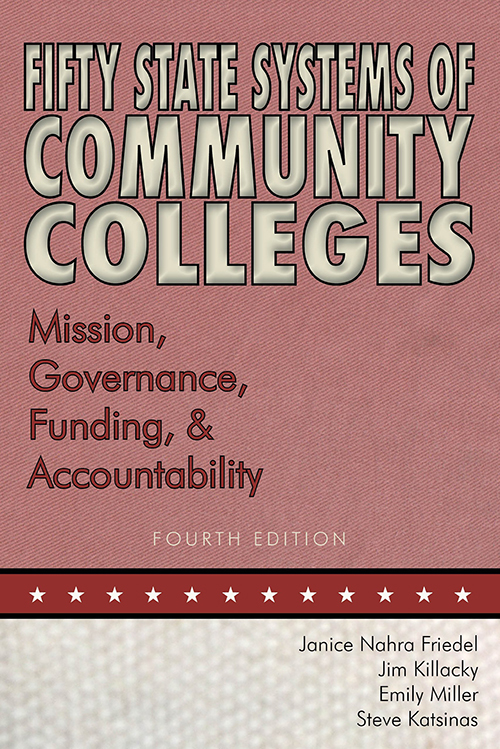
2. Fifty State Systems of Community Colleges: Mission, Governance, Funding, and Accountability By Janice Nahra Friedel, et al.
Details the unique and varied models of community colleges systems in the U.S. where no common model is available. Highlights the system of each state in terms of its history, purpose, governance, structure, funding, accountability, and challenges & opportunities. Allows for the comparison of key factors driving community colleges today including the political and financial aspects of the various administrative systems and how each system answers to taxpayers and policymakers.
Overmountain Press, 2014. 384 pages.
378.1543 F912F 2014

3. Fracking the Neighborhood: Reluctant Activists and Natural Gas Drilling By Jessica Smartt Gullion
Examines what happens when natural gas extraction by means of hydraulic fracturing or “fracking,” takes place, not on open rural land, but in densely populated areas. Offers an analysis of the environmental health activism, often by people who have never been activists, that has sprung up in otherwise politically conservative Texas urban communities. Chronicles the intrusive effects of fracking on these communities and highlights the frustration of residents who feel they are not provided with enough advance warning or information about the process. Describes the health effects from the environmental pollution that is created where fracking is taking place.
MIT Press, 2015. 191 pages.
622.3381 G946F 2015

4. Mexicans in the Making of America By Neil Foley
Analyzes the impact that Mexicans have had and are having on the evolving American landscape. Reviews many of the racially motivated legal and legislative hurdles aimed at Mexicans and Mexican-Americans. Chronicles both the struggles and milestones for Latinos from the Mexican-American War in 1848 through the present-day immigration debates. Suggests that the fast evolving demographics of the United States will not only help to shape the cultural diversity of this country but also its politics, and its economics.
Belknap Press of Harvard University, 2014. 344 pages.
973.046872 F699M 2014
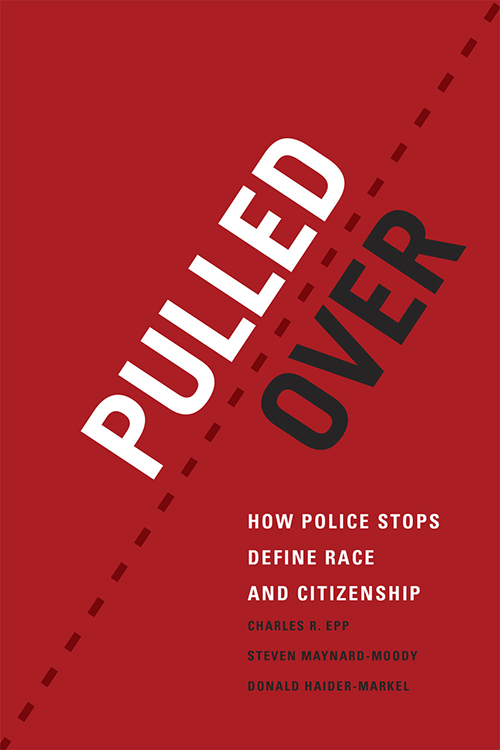
5. Pulled Over: How Police Stops Define Race and Citizenship By Charles R. Epp, Steven Maynard-Moody, and Donald Haider-Markel
Traces the development of "investigatory stops" in police practice. Presents results of an extensive survey and statistical modeling of traffic stops in the Kansas City metropolitan area, including the factors in a police officer's decision to make a stop and the experiences of drivers. Addresses racial disparities in investigative stops, particularly for African Americans. Recommends changes to law enforcement policy and practice to move toward racial justice in police stops.
University of Chicago Press, 2014. 253 pages.
363.2 EP61P 2014
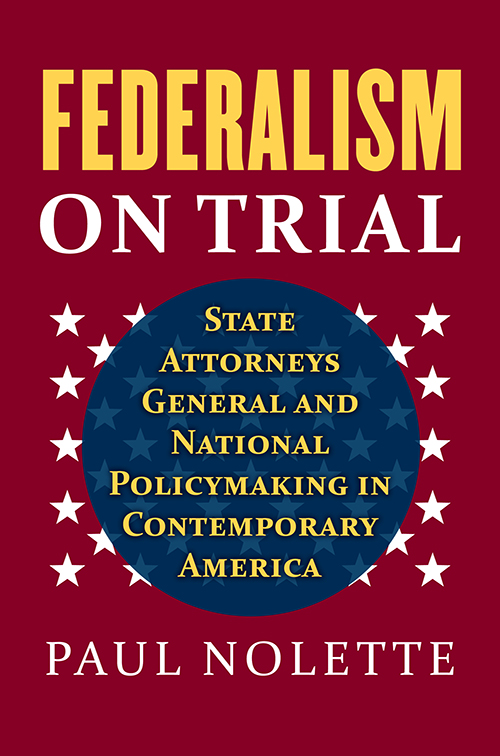
6. Federalism on Trial: State Attorneys General and National Policymaking in Contemporary America By Paul Neolette
Focuses on the activist role of state attorneys general in the use of coordinated policy-oriented lawsuits to influence national policymaking. Explores their role through case studies involving drug pricing, environmental policy, and health care reform. Highlights the fact that this activism at the state level has led to expanded governmental power at all levels and has had both positive and negative impacts.
University Press of Kansas, 2015. 286 pages.
320.6 N716 2015
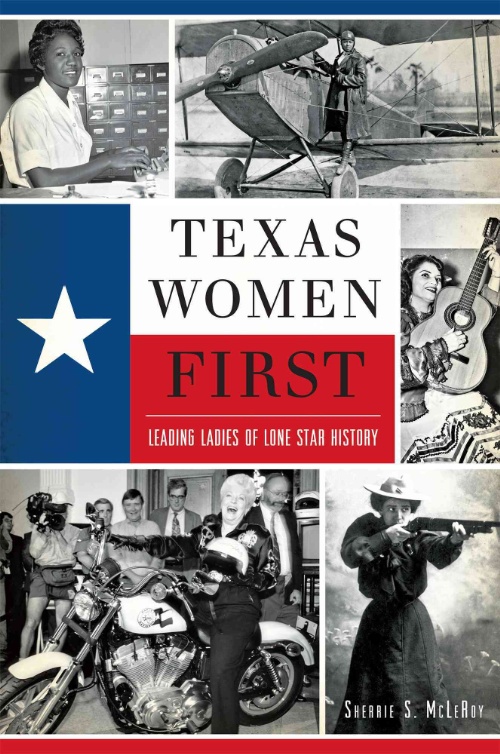
7. Texas Women First: Leading Ladies of Lone Star History By Sherrie S. McLeRoy
Celebrates the contributions and achievements of a mix of unconventional, trailblazing women in the Lone Star state. Profiles famous and not so famous women who broke barriers in areas as diverse as aeronautics, government, arts & entertainment, business, education, medicine, law, military, and social justice. Highlights memorable "firsts" accomplished by Texas women who have helped shape American history and continue to influence and inspire generations of people.
History Press, 2015. 188 pages.
- 60x30TX: Texas Higher Education Strategic Plan: 2015-2030, Texas Higher Education Coordinating Board, July 23, 2015
- Texas Higher Education Data, Policymakers (reports on higher education topics, including graduation rates, tuition and fees, degrees, and enrollment), Texas Higher Education Coordinating Board
- "San Diego Now Has a Cybersecurity Squad," Tribune News Service, Governing, October 14, 2015
- "San Antonio City Councilman Calls for Municipal Cybersecurity Plan," San Antonio Business Journal, October 1, 2015
- Interim Report to the 84th Legislature (Charge 3 - Integrated Identity Management Program), House Committee on Technology, December 2014
- Interim Report (Charge 3 - Cybersecurity of state agencies), Senate Committee on Government Organization, December 2014
- Framework for Improving Critical Infrastructure Cybersecurity (in response to Executive Order 13636), National Institute of Standards and Technology, Cybersecurity Framework, February 12, 2014
- Executive Order 13636 - Improving Critical Infrastructure Cybersecurity, President Barack Obama, The White House, February 12, 2013
- Building a More Secure And Prosperous Texas : A Report, Texas Cybersecurity, Education, and Economic Development Council, December 1, 2012
- HB 20 - Initial Report: Revenue Projections, Funding Categories & Allocations, Performance-based Decision Making, Texas Department of Transportation, September 1, 2015
- 84th Legislature 2015: Mapping for the Future (HB 20: TxDot Planning Processes), Texas Department of Transportation, 2015
- Program Allocation and Project Selection, Texas Department of Transportation
- Fast Act: The Fixing America's Surface Transportation Act, Transportation and Infrastructure Committee
- Fixing America's Surface Transportation Act or "FAST Act" (Funding Tables), Federal Highway Administration, December 17, 2015
- Federal Affairs Update (Presentation), Texas Department of Transportation , December 17, 2015
- "Green Light on Transportation Legislation," Real Estate Center, November 30, 2015
- "Texas Transportation Gets Funding Boost to Cope with Growing Population," Govtech.com, November 6, 2015
- Overview of Major Transportation Funding Actions by the 84th Legislature and Selected Alternative Funding Options (Proposition 7), Legislative Budget Board, September 2015
- Proposition 7 - Constitutional Amendment for Transportation Funding and FAQs: Proposition 7, Texas Department of Transportation
- Proposition 1 Funding, Texas Department of Transportation
- Governor Abbott Takes Action to Combat Illegal Border Crossings, Governor Greg Abbott, December 15, 2015
- Interim Report to the 84th Legislature (Charge 3, Border Security), House Committee on Homeland Security and Public Safety, January 2015
- Border Security Statistics and Border-Related Reports, Texas Department of Public Safety
- "Dallas County Sheriff: 'Sanctuary Cities' Law Could Lead to Ferguson-Like Protests," Dallas Morning News, December 10, 2015
- "GOP Lawmakers Still Targeting Sanctuary Cities," Texas Tribune, December 3, 2015
- "Sanctuaries Under Fire," CQ Weekly, November 30, 2015
- Interim Hearings - Week of November 30, 2015, Senate Committee on Veteran Affairs & Military Installations, Subcommittee on Border Security, Charge: Sanctuary cities, Legislative Reference Library, November 23, 2015
- Consider the Texas business margin tax and recent cuts to it by the 84th Legislature. (Texas Public Policy Foundation, December 2015)
- Explore the difficulties faced by Central Americans deported from the United States and Mexico. (Migration Policy Institute, December 2015)
- Read about the FDA's plan to ban chemicals found in pizza boxes and microwave popcorn bags. (Food Safety News, January 5, 2016)
- Track the employment of immigrants by state. (Pew Charitable Trusts, December 21, 2015)
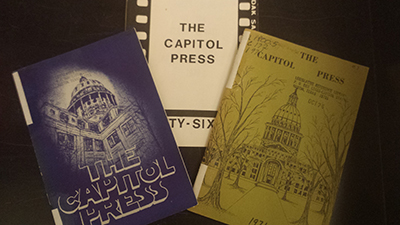
- Tax Incentive Evaluation Law: Texas (Fact sheet), Pew Charitable Trusts, June 22, 2015
- States Make Progress Evaluating Tax Incentives (Fact sheet) and Tax Incentive Programs: Evaluate Today, Improve Tomorrow, Pew Charitable Trust, January 2015
- Interim Report to the 84th Legislature, House Select Committee on Economic Development Incentives, January 2015
- Interim Report to the 84th Legislature (Incentives), House Committee on Economic and Small Business Development, December 2014
- Investing in Texas: Economic Incentives and Programs, TTARA Research Foundation, February 2015
- Part 2: How to Measure the Benefits of Economic Incentives (and How Not To), TTARA Research Foundation, February 2015
- Prove it, State Legislatures, February 2014
- Florida Economic Development Program Evaluations – Year 1, Office of the Florida Legislature: Office of Program Policy, January 2014
- Evaluating Tax Incentives: Choosing Goals and Measuring Results (PowerPoint), National Conference of State Legislatures, September 9, 2013
- An Analysis of Texas Economic Development Incentives 2010, Texas Comptroller of Public Accounts, March 2011
- Job Skills, Education and Workforce Development Resources, National Conference of State Legislatures, December 14, 2015
- "Economic Diversification in South Texas" and "A More Diversified Economy?" Economic Pulse, (No.6) & (No. 3), 2015
- New UTSA Study Stresses Diversification in Economic Development for Oil Boom Towns, Institute for Economic Development, November 10, 2015 and Recent Economic and Community Impact of Unconventional Oil and Gas Exploration and Production on South Texas Counties in the Eagle Ford Shale Area, Journal of Regional Analysis & Policy
- Overview of the Texas Workforce Development System, Legislative Budget Board, March 2011
- Workforce Development, Texas Wide Open for Business
- Examine school choice in major cities throughout America. (Thomas B. Fordham Institute, December 9, 2015)
- Track jail incarceration rates from 1970 to 2014. (Vera Institute of Justice, December 2015)
- Consider the cycle of traffic ticket debt. (Texas Fair Defense Project, accessed December 16, 2015)
- Read about 2015 developments in capital punishment. (Death Penalty Information Center, December 16, 2015)
- Consider the effects of snack foods on the health of children and teens. (UConn Rudd Center for Food Policy & Obesity, 2015)
- Find briefs related to Fisher v. Texas. (The University of Texas at Austin, accessed December 9, 2015)
- Review a list of editorials calling for civil forfeiture reform. (Institute for Justice, December 3, 2015)
- Read about states' rainy day funds. (Pew Charitable Trusts, December 2015)

1. Dissent and The Supreme Court: Its Role in the Court's History and The Nation's Constitutional Dialogue By Melvin I. Urofsky
Illustrates how a select number of dissenting opinions of the Supreme Court have been vital in the constitutional dialogue that has shaped the U.S. Constitution and our democratic society. Identifies significant dissents that prevailed over time, where critical dialogue was initiated by the dissenters and the Court sometimes, either quickly or decades later, adjusted its position and adopted the dissenting opinion. Addresses opinions on several issues including slavery, segregation, free speech, capital punishment, abortion, and gay rights. Argues dissent and constitutional dialogue are necessary in reinventing and reinvigorating our society and essential in keeping the Constitution alive.
Pantheon Books, 2015. 426 pages.
342.7302 UR6D 2015

2. Saving Capitalism: for the Many, Not the Few By Robert B. Reich
Discusses the political landscape that has shaped our current economic system. Examines the free market and how it is regulated, the worth and value of work, and the role of countervailing power in the shaping of economic policy and discourse. Ponders how the United States economy could be made more inclusive and stable through the establishment of programs such as a basic minimum income or the scaling back of copyright protections.
Alfred A. Knopf, 2015. 279 pages.
330.973 R271S 2015

3. In Defense of a Liberal Education By Fareed Zakaria
Discusses the virtues of a liberal arts education at a time when many feel that this kind of undergraduate degree is a waste of time and money. Recounts the author's own educational experience in India and at Yale to help challenge the current belief held by many in the U.S. that students must obtain a skills-based education in order to succeed. Argues that while a professional education may ensure students a job upon graduating, it is the students who have learned to write and think clearly and analytically, and to express themselves convincingly who are of the most value to employers and society in the long run.
W.W. Norton & Company, 2015. 204 pages.
370.11 Z13I 2015

4. Hate Crimes in Cyberspace By Danielle Keats Citron
Examines cyber-stalking/harassment through a documented series of personal accounts, many of which include threats of violence, privacy invasions, and cyber-stalking. Proposes that a more proactive approach is needed to combat hate crimes online, both by legislators and private businesses. Argues that there should be a balance between an individual's right to online privacy and someone else's right to free speech online, which sets the stage for a new civil rights fight in the digital age.
Harvard University Press, 2014. 343 pages.
364.150285 C498H 2014

5. Then Comes Marriage: United States v. Windsor and the Defeat of DOMA By Roberta Kaplan with Lisa Dickey
Chronicles the history of the United States v. Windsor case in which the U.S. Supreme Court ruled the federal Defense of Marriage Act (DOMA) unconstitutional. Offers a personal and behind-the-scenes view of the litigation, including the oral argument before the Court, by the lead plaintiff's attorney in the case, Roberta Kaplan.
W.W. Norton & Company, 2015. 350 pages.
346.7301 K141C 2015

6. Democracy's Muse: How Thomas Jefferson Became an FDR Liberal, a Reagan Republican, and a Tea Party Fanatic, All the While Being Dead By Andrew Burstein
Explores how politicians on the right and left have made Thomas Jefferson the definer of essential American values, as they see them. Investigates how the past has sometimes been misappropriated, highlighting examples of racism and separation of church and state. Concludes Jefferson has become whatever an adoring posterity has needed him to be, and therefore, this critique of modern politics is as much about us as it is about Jefferson.
University of Virginia Press, 2015. 256 pages.
320.01 B949D 2015

